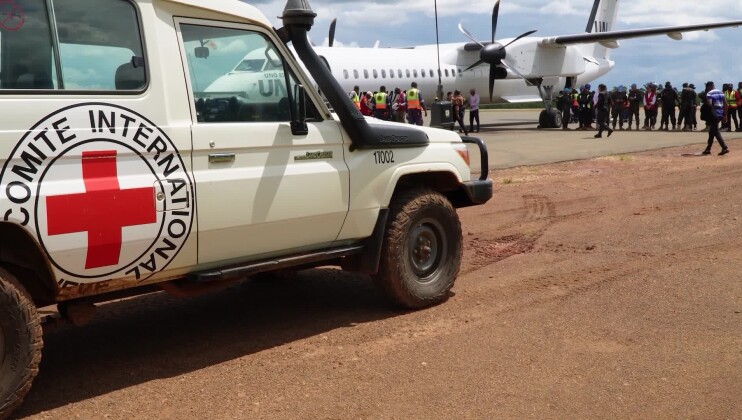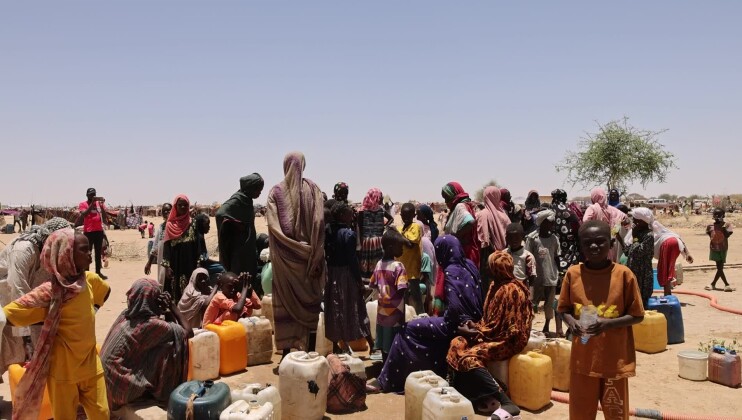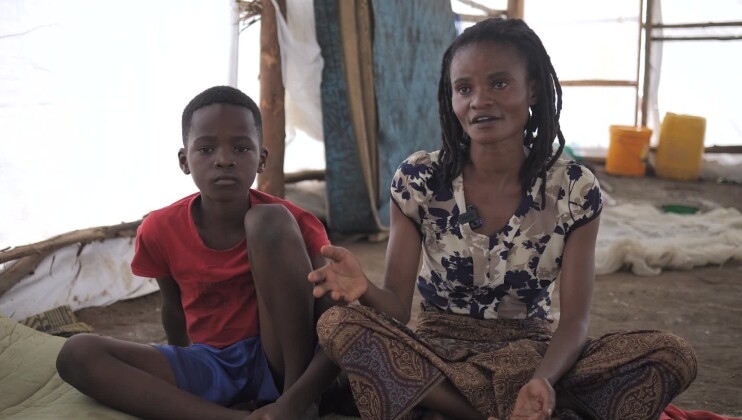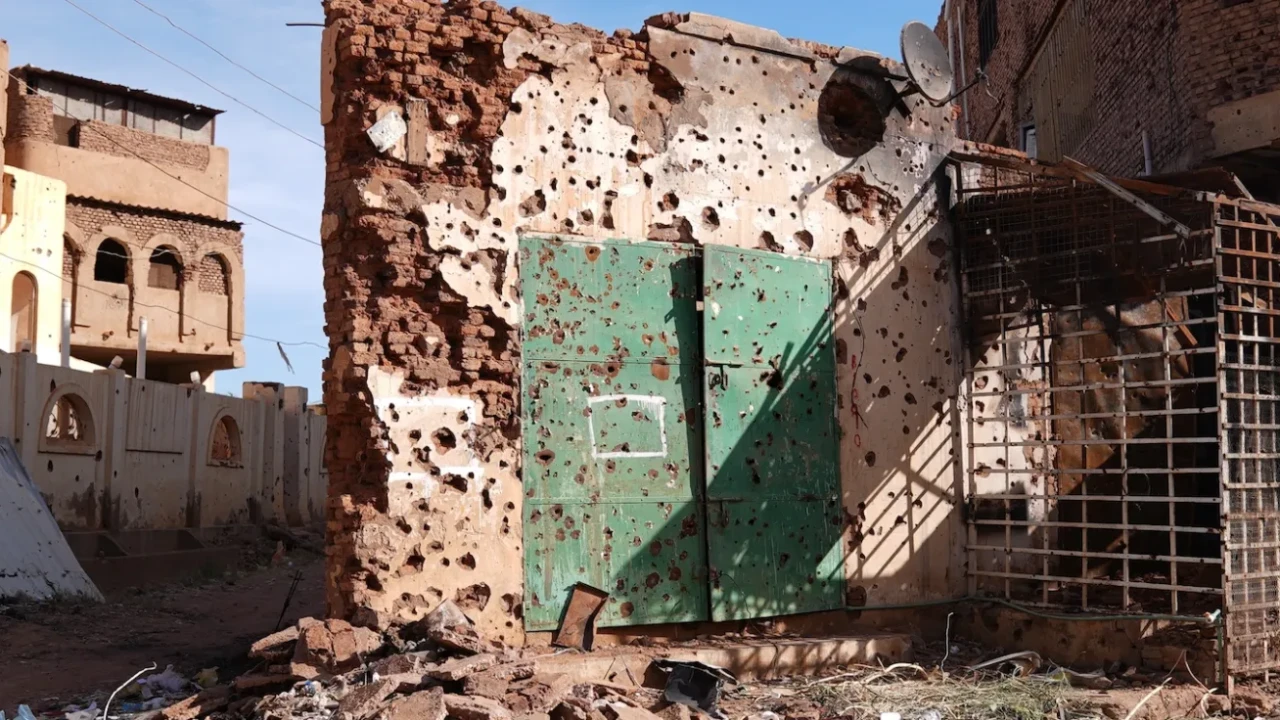Growing need for care for South Sudan's amputees
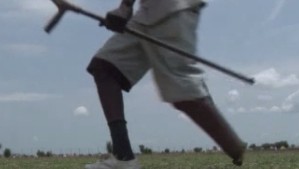
This is a modal window.
As South Sudan turns 1 year old (9 July 2012), an estimated 50,000 people in the country are amputees. Many of these severe injuries are a result of present and past armed conflicts. The use of landmines was common during the pre-independence armed conflict between the north and the south, and they continue to be used today.
With the South Sudanese government, the ICRC manages a rehabilitation centre for people with physical disabilities in Juba. It is the only operational one of its kind in the country and for many South Sudanese, getting to Juba is too expensive and difficult. For the last 3 years, the ICRC has been running a plane service helping the war wounded and amputees get treatment. The ICRC estimates they are picking up and, after treatment, bringing back home between 10 and 20 patients per month.
10 year old Karima Deng was in her village, Abiemnom, when a bomb fell. Karima's aunt, Achol Mabil, was with her: "We were in the bush and a bomb from the airplane fell and hurt her leg." Four other people were injured in the attack. They were all taken to the village health clinic, but there was no doctor and no way of performing surgery. After two hours, the villagers managed to find a pick-up truck which took them to the town of Bentiu, a four hour drive away.
Karima's leg was amputated. Navid Dadbin, a physiotherapist for the ICRC at the Physical Rehabilitation Reference Centre in Juba, is overseeing Karima's treatment. "You can see she is a little bit depressed," says Dadbin. "But after she can see that she can walk again, and be in society like other people, all these psychological aspects will be removed."
Dadbin explains another important psychological aspect of having access to this rehabilitation centre is that the patient comes into contact with others who have lost a limb. "This is the place where she can see other people with the same difficulties and problems," says Dadbin. "It is really important for her, to feel comfortable and not to feel alone."
Dadbin is confident that Karima's spirits will lift when her artificial limb is fitted: "You can see that it is really difficult for her to move around, but with this artificial or prosthetic limb, I think she will be back to her former situation. She'll be able to walk or even maybe run."
The Juba Physical Rehabilitation Reference Centre is currently able to fit 50 limbs per month but they need to increase to treat 100 patients a month. Nathan Pitia, Director General of the Ministry of Gender, Child & Social Welfare in South Sudan says: "This is the only facility that can help them with rehabilitation, so they are having problems because this is the only institution we have."
Facts & Figures 2012:
- Approximately 30% of the amputees to whom the ICRC has delivered artificial limbs since 2008 were victims of landmine accidents
- For a population of nearly 9 million people, there are only 120 medical doctors and just over 100 registered nurses. Vulnerable groups like women, children and the wounded are particularly at risk: South Sudan records the highest maternal mortality in the world.
- Over 2,000 physically disabled people received treatment through ICRC-supported physical rehabilitation services.
- More than 400 artificial limbs were fitted for amputees, while hundreds of orthotic devices, wheelchairs and crutches and sticks were also delivered. Just over 1,000 patients also benefited from physiotherapy services
